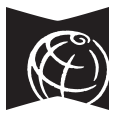Seattle Historic Postcard Collection
Preview up to 100 items from this collection below. Highlights of early 20th century Seattle, as depicted through our historic postcards. Cards include images of buildings, attractions and events from the 1900s to the 1960s along with messages between friends and family.
-
St. James Cathedral, ca. 1909
Bishop Edward O'Dea purchased the land for St. James Cathedral's First Hill site in 1903 after successfully petitioning the Pope to relocate the episcopal see from Vancouver, Washington to Seattle. The cornerstone for the building was laid in 1905 with more than 5,000 people in attendance and the cathedral officially opened on December 15, 1907.
Identifier: spl_pc_00311
Date: 1909?
View this item -
New Washington Hotel, ca. 1930
Transcribed from postcard: "In the heart of the theatrical and shopping district. Seattle's leading commercial & tourist hotel, all rooms with private bath. Tariff $3.00 per day and up. J.C. Marmaduke, Manager H.R. Warner. Ass't. Manager."
Identifier: spl_pc_00802
Date: 1930?
View this item -
St. James Cathedral, November 15, 1909
Bishop Edward O'Dea purchased the land for St. James Cathedral's First Hill site in 1903 after successfully petitioning the Pope to relocate the episcopal see from Vancouver, Washington to Seattle. The cornerstone for the building was laid in 1905 with more than 5,000 people in attendance and the cathedral officially opened on December 15, 1907.
Identifier: spl_pc_00307
Date: 1909-11-15
View this item -
Hotel Frye, ca. 1911
The Frye Hotel opened in 1911. Transcribed from postcard: "European. Fireproof. Now open. Seattle's newest fireproof and most conveniently located hotel in city, corner Yesler Way and Third Avenue. Moderate rates. Room with detached bath $1.00 to $1.50, room with private bath $1.50 to $3.00. R.E. Nixon, Manager."
Identifier: spl_pc_00816
Date: 1911?
View this item -
Washington Hotel, ca. 1905
The Washington Hotel (originally called the Denny Hotel) as it appeared at its location on 4th Avenue and Stewart Street before the Denny Regrade. Construction of The Denny Hotel started in 1889 but was stopped with only the exterior completed when the Panic of 1893 hit. James A. Moore purchased the property, renaming it the Washington Hotel, but was only able to operate it for a short time before the Denny Regrade forced it to close. The initial regrade lasted from 1902 to 1911 and sluiced much of the land that the hotel originally stood on down into Elliott Bay.
Identifier: spl_pc_00826
Date: 1905?
View this item -
King Street Station interior, ca. 1906
During the early 1900's, there was increasing interest in connecting railroads with Seattle. The high demand and competition between railways resulted in two railway stations being built directly next to each other at 4th Avenue and Jackson Street. King Street Station (the interior of which is depicted in this postcard) was constructed in 1906 and can be distinguished by its tower. Union Station, originally known as the Oregon and Washington Station, was constructed in 1911. Confusingly, both stations were sometimes referred to as "union stations" or "union depots" due to the fact that multiple railroad lines were shared within the same terminal. For a good example of the differences between Union Station and King Street Station see spl_pc_01011 where Union Station appears in the foreground and King Street Station appears in the background.
Identifier: spl_pc_01015
Date: 1906
View this item -
Union Station, ca. 1911
Transcribed from postcard: "New Oregon-Washington Depot. This new depot is 145 x 185 ft. and cost, with its switching yards, $1,000,000 for construction. It is the most northern "out post" of the Harriman system of 13,000 miles of railroads, the greatest in the world."
Identifier: spl_pc_01012
Date: 1911?
View this item -
Residences on Capitol Hill, ca. 1905
Street view of residences on Capitol Hill.
Identifier: spl_pc_00606
Date: 1905?
View this item -
Westward Motel & Gift Shop, ca. 1965
Street view of the Westward Motel and Gift Shop located on Aurora Avenue in Shoreline. Owned and operated by Bill and Mildred Rother.
Identifier: spl_pc_00813
Date: 1965?
View this item -
Hotel Lincoln's rooftop garden, ca. 1910
Hotel Lincoln was constructed in 1900 at the intersection of 4th Avenue and Madison Street. The hotel was destroyed by fire in 1920.
Identifier: spl_pc_00803
Date: 1910?
View this item

